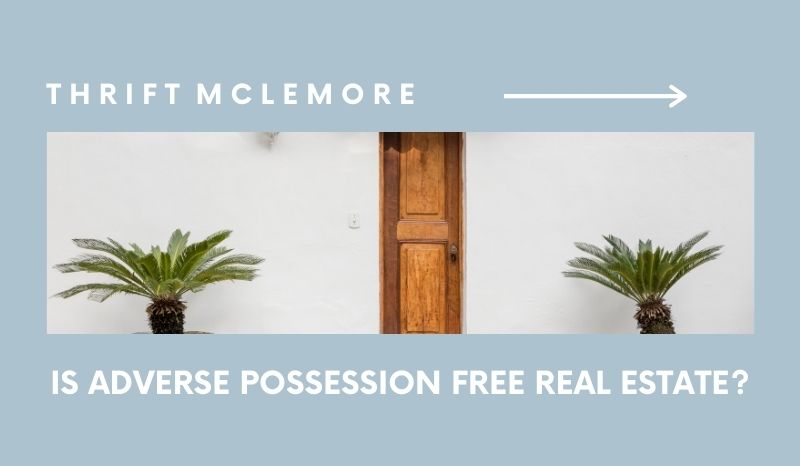One of the most interesting quirks of real property law is the ability to take another’s real property legally – for free! This legal doctrine is called adverse possession.
Adverse possession stems from the old English common law. It was used to punish those who “waste” the ownership rights of their property.
Today, adverse possession avoids an unfair situation where one person has neglected a piece of property while someone else uses and cares for it for a long time.
So how does someone get legal rights over property without having to pay for it?
In Georgia, several requirements must be met to successfully establish ownership over someone else’s land through adverse possession.
First, the adverse possessor must continuously use another’s property for the statutory period. Georgia law sets the statutory period at 20 years.
But there is an exception to the 20-year rule: if the adverse possessor is in possession under written evidence of title, the statutory period is reduced to seven years.
In the meantime, the adverse possessor is considered a trespasser and is liable as such. This means the adverse possessor could be charged with criminal trespass and sued for damages.
Second, the adverse possessor must openly use the property in a manner that the owner would notice. This requirement avoids punishing a landowner for something minimal.
Third, the adverse possessor must be hostile. This means the legal owner has not consented to the property’s use in any way.
Fourth, the adverse possessor must have a good faith belief they have rights to the property.
Fifth and finally, the adverse possessor and the legal owner cannot simultaneously possess the property.
Someone who satisfies these requirements can obtain a decree from the court indicating their valid ownership of the land.
How Can Property Owners Protect Themselves?
While, in theory, a stranger could legally take your property through adverse possession, it happens most commonly with neighbors. A simple way to avoid adverse possession is to utilize fences to establish your property’s boundary lines.
Again, adverse possession is meant to punish those who sleep on their property rights or “waste” the property. Therefore, simply using and upkeeping property goes a long way in avoiding an adverse possession issue. If the property goes unused, owners should regularly inspect the property or hire someone to do so.
If there’s a trespasser, it is important to act quickly and take corrective steps such as evicting them or even offering to rent them the property.
The real estate attorneys at Thrift McLemore are well versed in resolving property disputes. Our team will utilize their years of experience to provide high-quality representation and get the best resolution possible.

